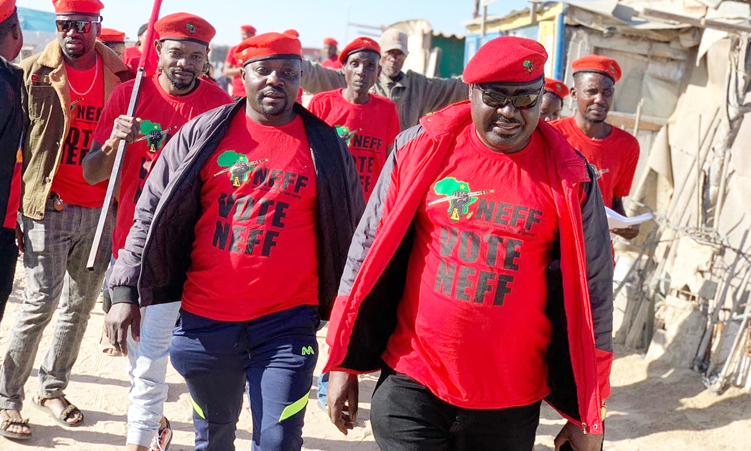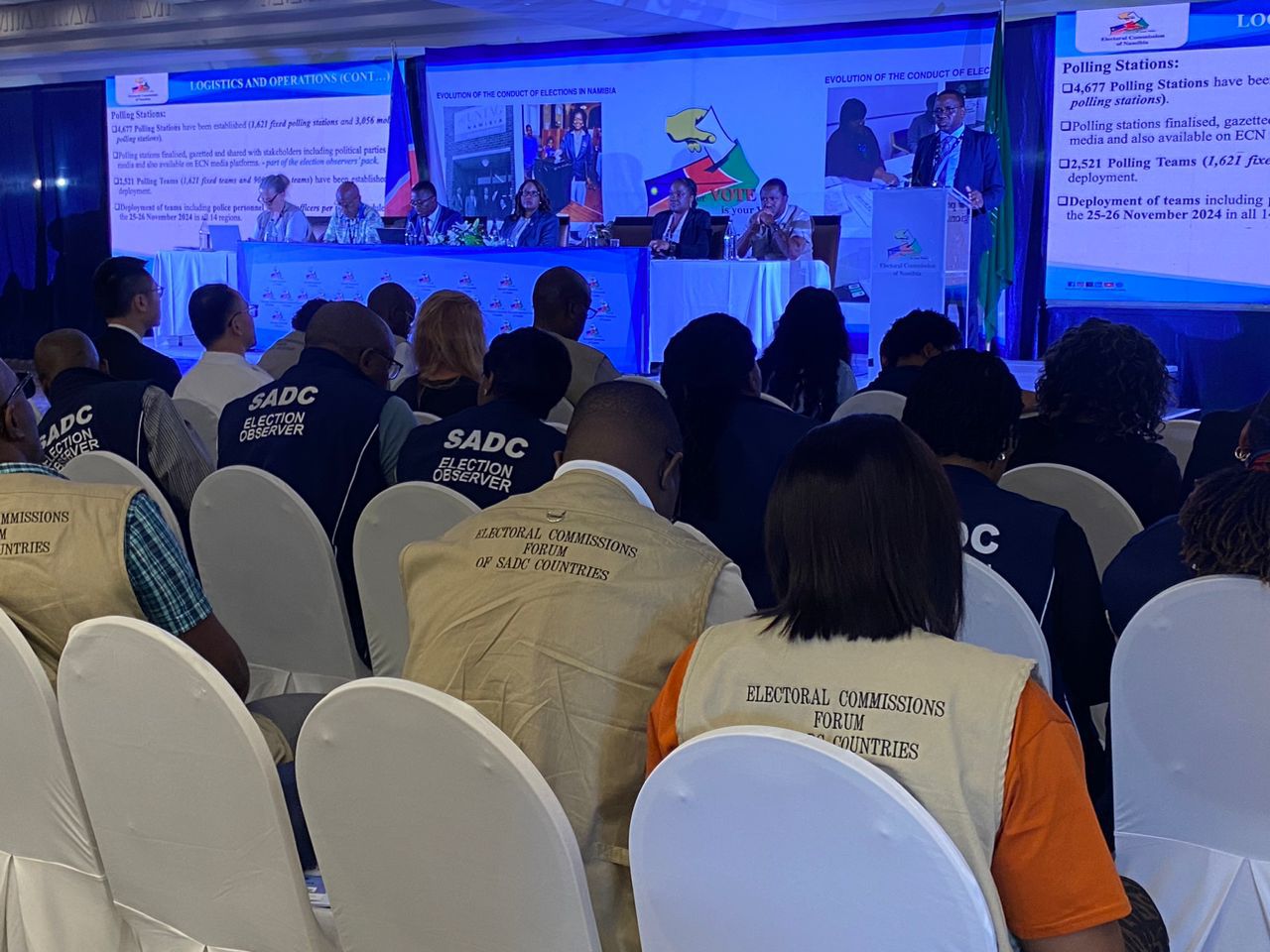Party’s SA lawyers denied work permits
The Electoral Commission of Namibia (ECN) is disputing that the Electoral Court can deal with a case in which the Namibia Economic Freedom Fighters (NEFF) is trying to challenge the ECN’s decision to cancel its registration as a political party.
Two South African lawyers who were set to represent the NEFF in the Electoral Court yesterday, senior counsel Dali Mpofu and Lerato Moela, did not argue the matter as planned, after they were denied employment permits by Namibia’s immigration authorities – a development that NEFF deputy leader Kalimbo Iipumbu slammed as “dirty tricks”.
A lawyer representing the ECN notified the Electoral Court and NEFF lawyer Kadhila Amoomo at the end of last week that according to the ECN, the Electoral Court does not have the jurisdiction to hear the urgent application that the NEFF filed against the commission nearly three weeks ago.
The NEFF’s application should have been filed in the High Court, and not as an Electoral Court matter, lawyer Gerson Narib, representing the ECN, argued during the hearing of oral arguments before deputy judge president Hosea Angula and judges Orben Sibeya and Beatrix de Jager yesterday.
The NEFF, which won two seats in the National Assembly in the November 2019 parliamentary elections, is asking the court to order the ECN not to proceed with the implementation of its decision to cancel the NEFF’s registration as a political party.

The NEFF has also given notice that it will be asking the Electoral Court to review and set aside the ECN’s decision, taken on 17 June this year, to cancel the party’s registration, and to declare that decision as unlawful, unconstitutional and invalid.
The court postponed the delivery of its judgement to 8 August at the end of the hearing of oral arguments.
In written arguments filed at the court, Mpofu and Moela label the ECN’s decision to cancel the NEFF’s registration as “drastic and probably unprecedented” and as “effectively banning a political party”.
They also argue that the ECN’s decision was premature, that the NEFF was not given an opportunity to be heard before the decision was taken, and that the decision was irrational.
The ECN decided to cancel the NEFF’s registration, because the party failed to lodge copies of its audited annual financial results with the commission as required by the Electoral Act.
Mpofu and Moela record in their written arguments that the ECN in June last year gave the NEFF until the end of November last year to lodge its outstanding audited financial results with the commission.
In April this year, that deadline was extended to the end of June, they say.
By 18 June, the NEFF had submitted its financial statements for the 2020/21 and 2021/22 financial years and made a commitment to lodge the remaining outstanding financial statements by 18 June, the two lawyers recount.
However, the ECN decided on 17 June to “abruptly and unlawfully” cancel the registration of the party.
The ECN took that decision without having given the NEFF an opportunity to be heard and despite the fact that the Electoral Act says the ECN may cancel the registration of a political party after it has given the party an opportunity to be heard, Mpofu and Moela argue.
In his written arguments, Narib is arguing that the Electoral Court is a special court established to deal with matters that are limited to what is set out in the Electoral Act.
The act limits the Electoral Court’s jurisdiction regarding pre-election matters to appeals coming from electoral tribunals, which the NEFF’s application is not, Narib argues.
The party’s application “does not relate to the conduct of an election or to the processes before or after elections, and for this reason does not raise an electoral issue”, according to Narib.
The Electoral Act requires of political parties to submit audited financial statements to the ECN annually, Narib notes in his arguments.
He also says the act gives the ECN the power to cancel the registration of a party which in the ECN’s opinion persists in contravening the act.
The ECN exchanged several letters with the NEFF about the filing of the party’s outstanding financial statements and warned the NEFF in a letter on 25 April this year that if it did not submit the statements within 14 days, the commission would use the section of the Electoral Act that allows it to cancel the NEFF’s registration, Narib says.
He also argues the NEFF had “adequate opportunity” to be heard, but did not make use of that opportunity before the ECN decided to cancel its registration.
Amoomo represented the NEFF during their hearing in court.
Narib was assisted by government lawyer Cynthia Endjambi.
LAWYERS BLOCKED
Iipumbu said in a media statement yesterday that the NEFF rejects the “dirty tricks” of the government in denying the party their constitutional right to legal representation of its choice.
Iipumbu said immigration officials wanted Mpofu and Moela to provide proof of their academic qualifications.
He remarked: “This is strange considering that the South African Legal Practice Council had issued certificates confirming the professional status of the NEFF legal representatives and the chief justice of Namibia issued them with permission to appear in the Electoral Court for the NEFF.”
Iipumbu continued: “How could these esteemed offices recognise our lawyers’ credentials but not mere immigration officials?”
He also said: “There is definitely something fishy with this story.”
Phone calls to the minister of home affairs, immigration, safety and security, Albert Kawana, and the executive director of the ministry, Etienne Maritz, went unanswered yesterday afternoon.
Stay informed with The Namibian – your source for credible journalism. Get in-depth reporting and opinions for
only N$85 a month. Invest in journalism, invest in democracy –
Subscribe Now!






